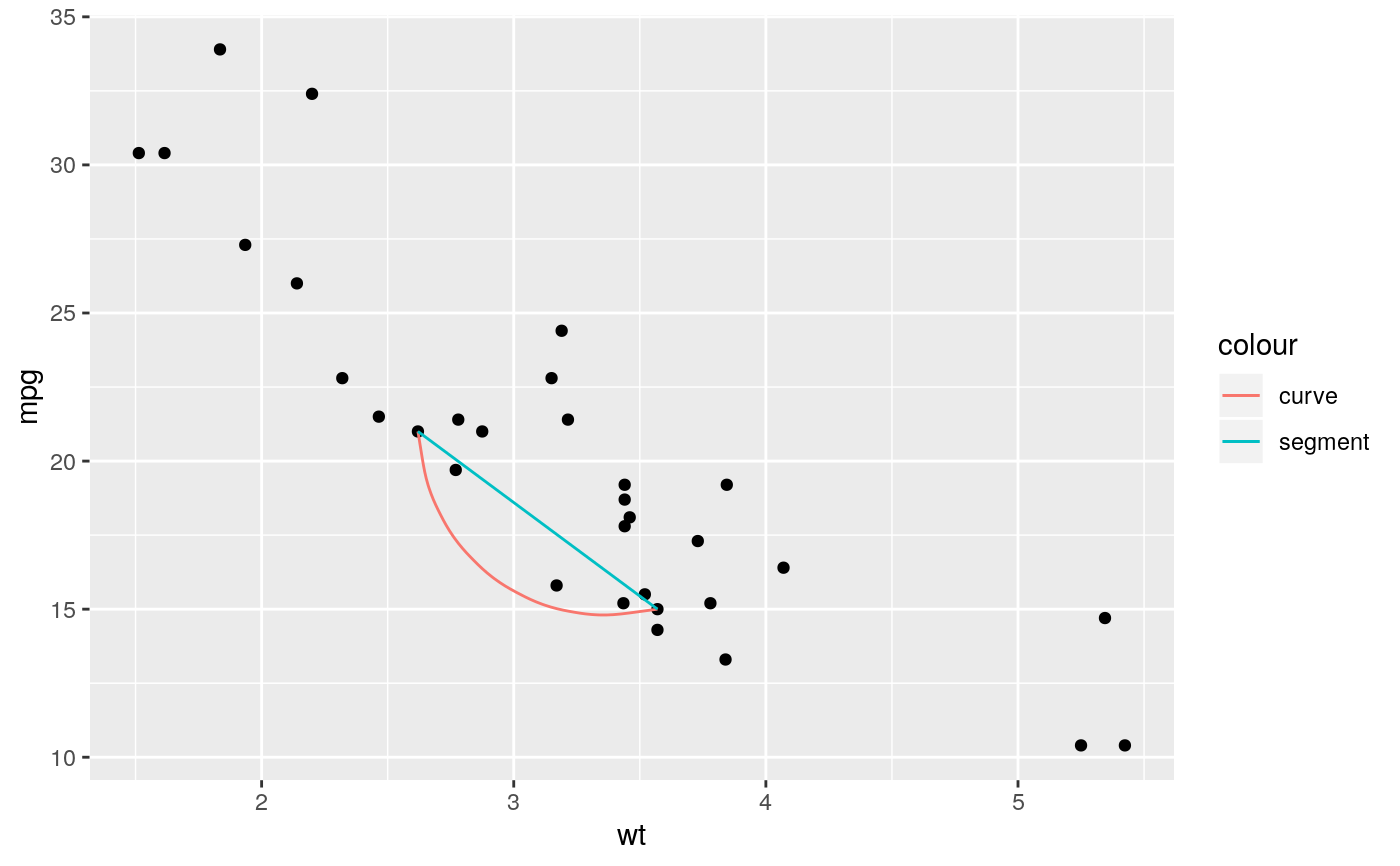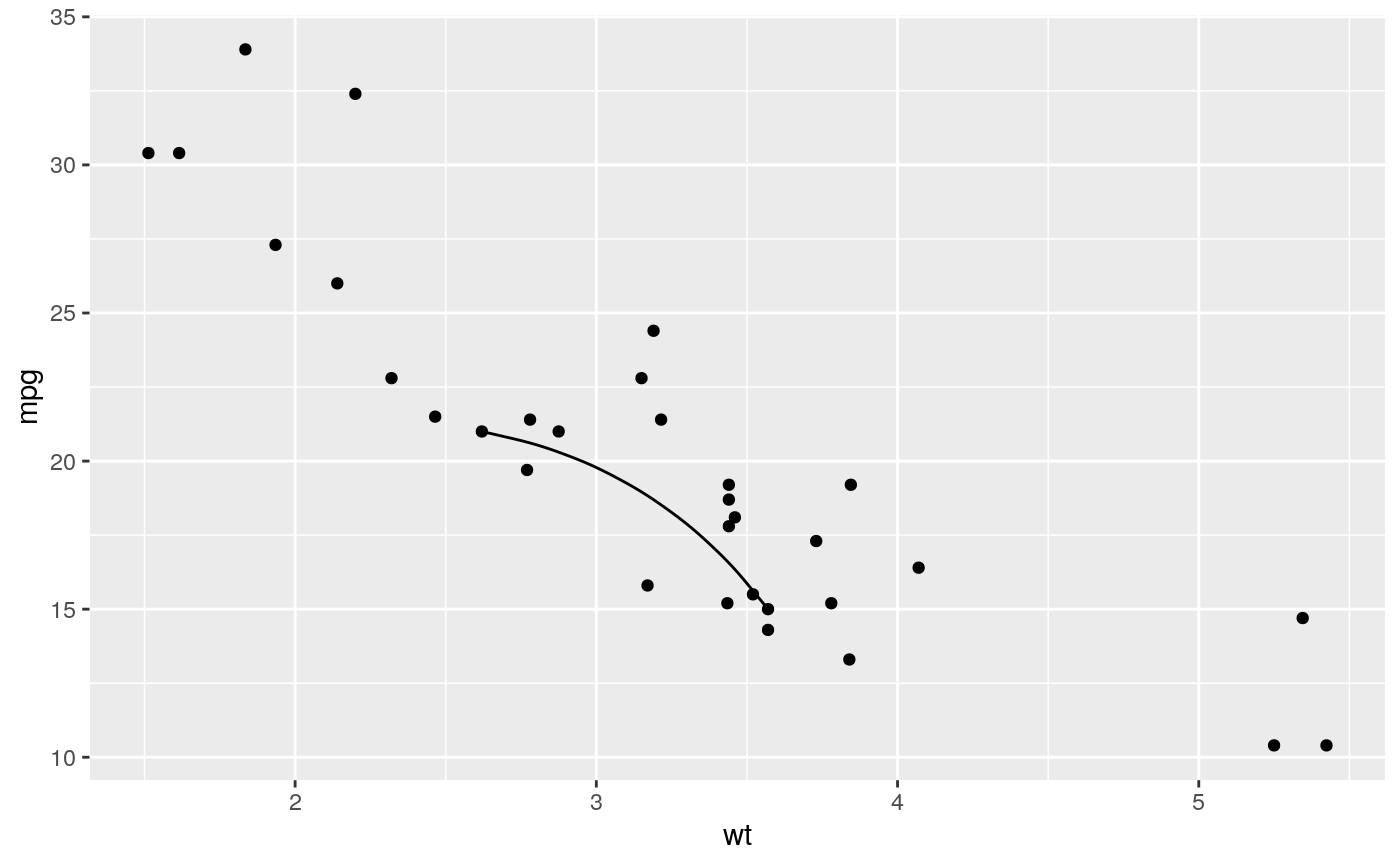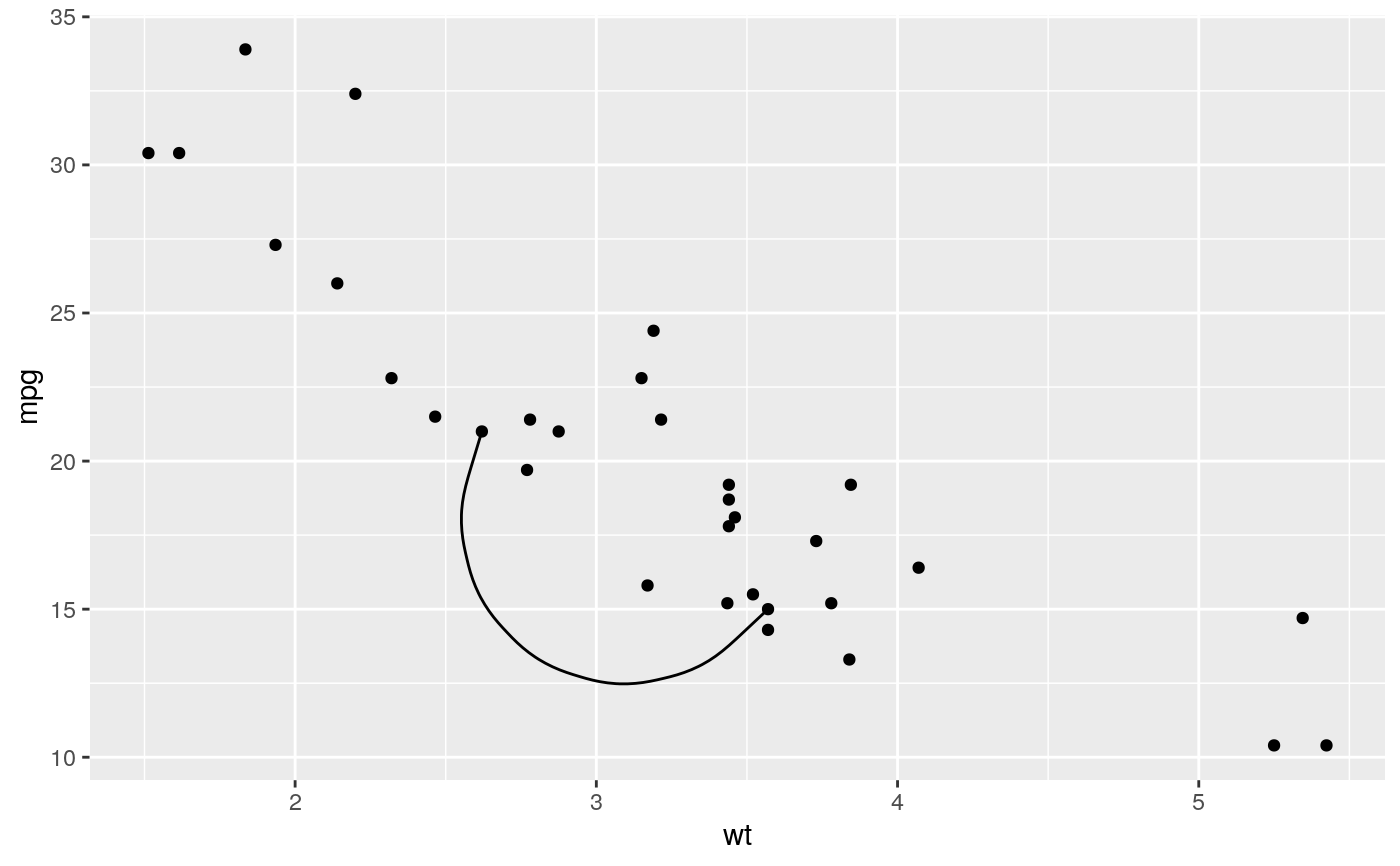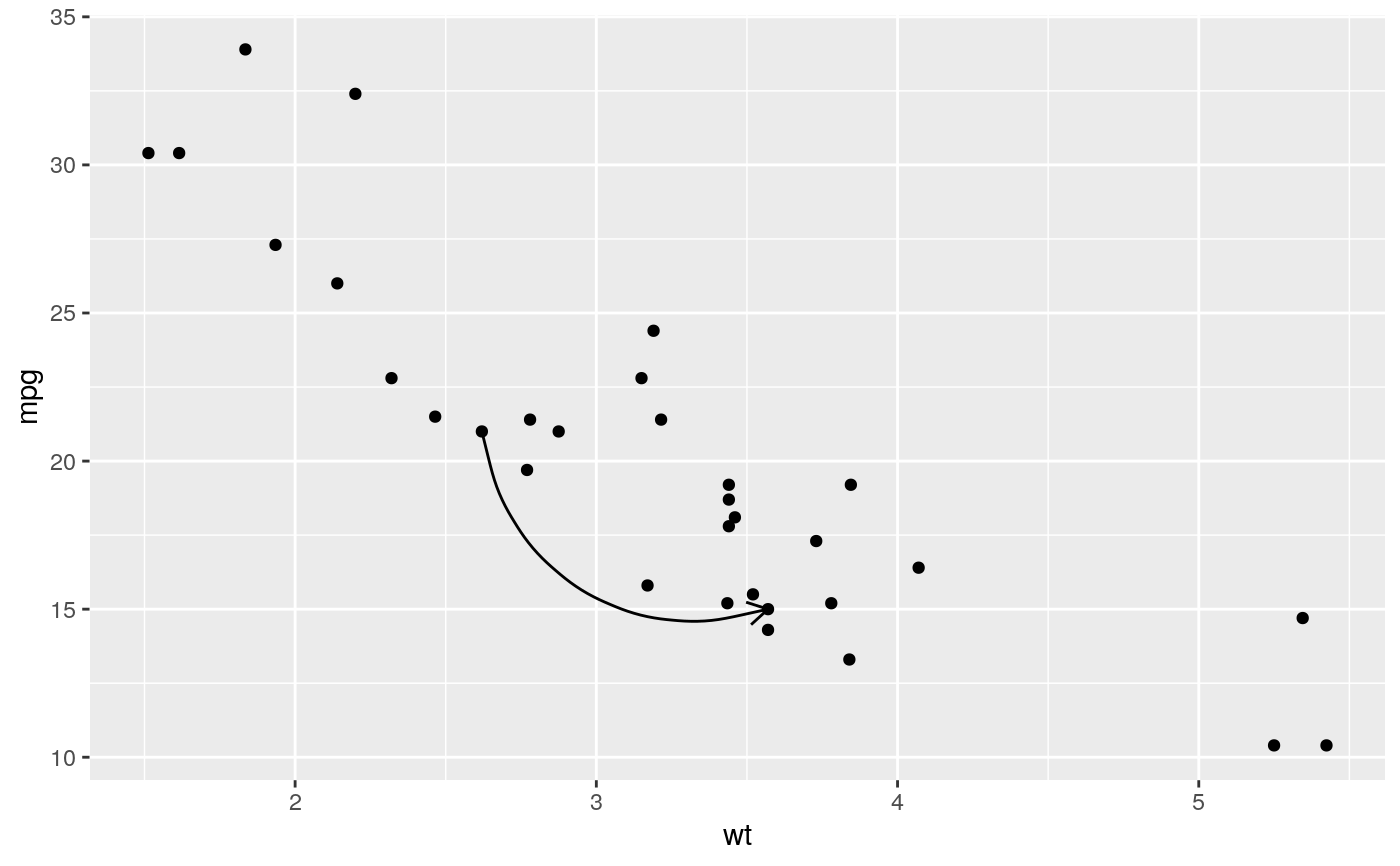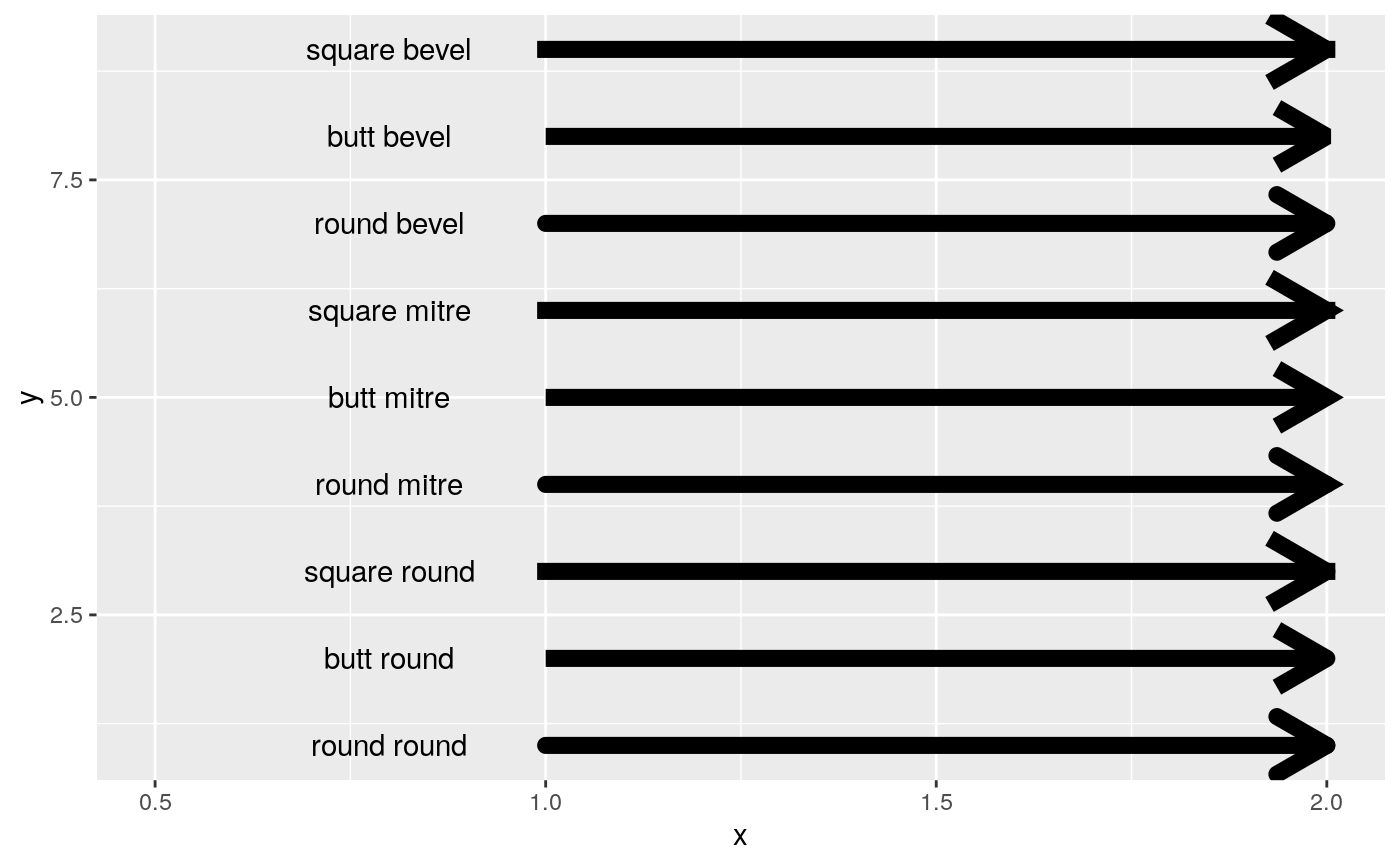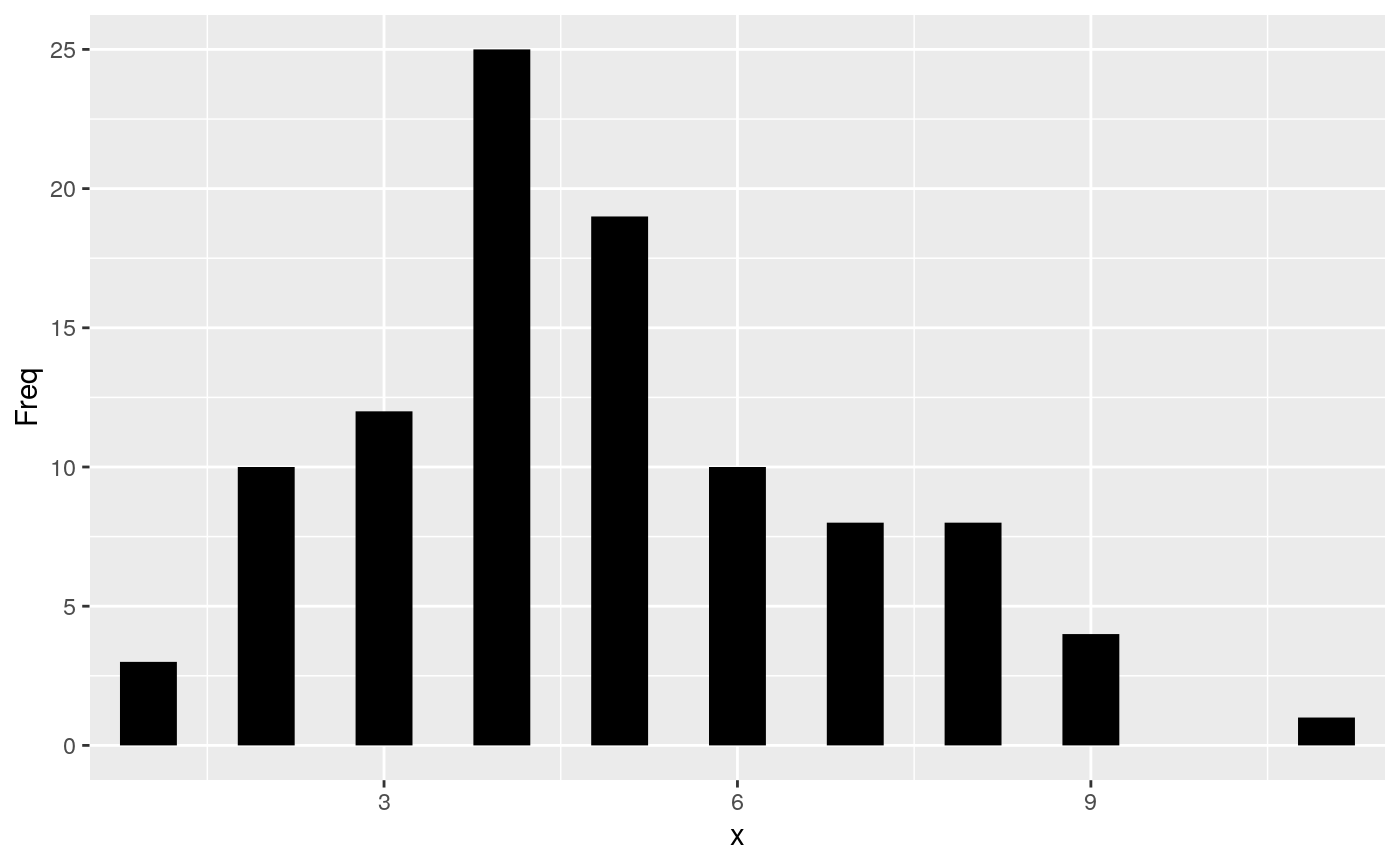geom_segment draws a straight line between points (x, y) and
(xend, yend). geom_curve draws a curved line. See the underlying
drawing function grid::curveGrob() for the parameters that
control the curve.
geom_segment(mapping = NULL, data = NULL, stat = "identity", position = "identity", ..., arrow = NULL, arrow.fill = NULL, lineend = "butt", linejoin = "round", na.rm = FALSE, show.legend = NA, inherit.aes = TRUE) geom_curve(mapping = NULL, data = NULL, stat = "identity", position = "identity", ..., curvature = 0.5, angle = 90, ncp = 5, arrow = NULL, arrow.fill = NULL, lineend = "butt", na.rm = FALSE, show.legend = NA, inherit.aes = TRUE)
Arguments
| mapping | Set of aesthetic mappings created by |
|---|---|
| data | The data to be displayed in this layer. There are three options: If A A |
| stat | The statistical transformation to use on the data for this layer, as a string. |
| position | Position adjustment, either as a string, or the result of a call to a position adjustment function. |
| ... | Other arguments passed on to |
| arrow | specification for arrow heads, as created by arrow(). |
| arrow.fill | fill colour to use for the arrow head (if closed). |
| lineend | Line end style (round, butt, square). |
| linejoin | Line join style (round, mitre, bevel). |
| na.rm | If |
| show.legend | logical. Should this layer be included in the legends?
|
| inherit.aes | If |
| curvature | A numeric value giving the amount of curvature. Negative values produce left-hand curves, positive values produce right-hand curves, and zero produces a straight line. |
| angle | A numeric value between 0 and 180, giving an amount to skew the control points of the curve. Values less than 90 skew the curve towards the start point and values greater than 90 skew the curve towards the end point. |
| ncp | The number of control points used to draw the curve. More control points creates a smoother curve. |
Details
Both geoms draw a single segment/curve per case. See geom_path if you
need to connect points across multiple cases.
Aesthetics
geom_segment() understands the following aesthetics (required aesthetics are in bold):
xyxendyendalphacolourgrouplinetypesize
Learn more about setting these aesthetics in vignette("ggplot2-specs").
See also
geom_path() and geom_line() for multi-
segment lines and paths.
geom_spoke() for a segment parameterised by a location
(x, y), and an angle and radius.
Examples
b <- ggplot(mtcars, aes(wt, mpg)) + geom_point() df <- data.frame(x1 = 2.62, x2 = 3.57, y1 = 21.0, y2 = 15.0) b + geom_curve(aes(x = x1, y = y1, xend = x2, yend = y2, colour = "curve"), data = df) + geom_segment(aes(x = x1, y = y1, xend = x2, yend = y2, colour = "segment"), data = df)b + geom_curve( aes(x = x1, y = y1, xend = x2, yend = y2), data = df, arrow = arrow(length = unit(0.03, "npc")) )ggplot(seals, aes(long, lat)) + geom_segment(aes(xend = long + delta_long, yend = lat + delta_lat), arrow = arrow(length = unit(0.1,"cm"))) + borders("state")#> Error: Package `maps` required for `map_data`. #> Please install and try again.# Use lineend and linejoin to change the style of the segments df2 <- expand.grid( lineend = c('round', 'butt', 'square'), linejoin = c('round', 'mitre', 'bevel'), stringsAsFactors = FALSE ) df2 <- data.frame(df2, y = 1:9) ggplot(df2, aes(x = 1, y = y, xend = 2, yend = y, label = paste(lineend, linejoin))) + geom_segment( lineend = df2$lineend, linejoin = df2$linejoin, size = 3, arrow = arrow(length = unit(0.3, "inches")) ) + geom_text(hjust = 'outside', nudge_x = -0.2) + xlim(0.5, 2)# You can also use geom_segment to recreate plot(type = "h") : counts <- as.data.frame(table(x = rpois(100,5))) counts$x <- as.numeric(as.character(counts$x)) with(counts, plot(x, Freq, type = "h", lwd = 10))
